#alcohol diabetes
Explore tagged Tumblr posts
Text
#alcohol#best alcohol for diabetics to drink#how to drink alcohol and stay lean#drinking alcohol#can we drink alcohol in diabetes#alcohol in diabetes#can i drink alcohol on the keto diet#alcohol diabetes#diabetes and alcohol consumption#alcohol and diabetes#diabetes and alcohol#calories in alcohol#best drinking choices to make when going out#how to party on a diet (drinking alcohol and losing weight)#alcohol in diabetes in hindi#alcohol choices on keto
0 notes
Text
I don't know why but seeing the character's signature drinks on the otomate garden menu is so freaking funny to me like, Sena's is just straight up black coffee which I did NOT expect. But he'd def be the type to melodramatically order coffee in goth fashion aka "Coffee as black as my soul please" kind of fashion when he's in the mood to be funny.
Also, Koyo's is just flavoured water. Water guys, it's just water. Orange flavoured yes but it's still just water.
#9rip#and ofc seiya gets the alcohol variant of the group#we gotta establish his age (?)#and hibiki gets carbonated water because he wanted to try modern soda#also its very cute that Kureha's comes with a small katana shaped knife#Minami's is the most health hazardous out of all of them bcz its sweet af#someone's gonna get diabetes drinking that#would order Yukimaro's because i like matcha#unfortunately i dont live in japan so my dreams were utterly crushed to dust#I also find it so cute they made a pasta set for koyo and sena#im rambling so much rn omg#9 r.i.p#9 rip#9 r.i.p.
12 notes
·
View notes
Text
It is wild how many people assumed that I didn’t drink alcohol for a Serious Reason in grad school. First of all because it’s a big leap to see someone drink a Diet Coke at the bar and assume that they’re a recovering alcoholic or a traumatized child of alcoholics or opposed to alcohol for religious reasons or suffering from a medical condition that precludes drinking. Second of all because I actually did drink in grad school! I just abstained about half the time for really mundane reasons (I was broke, I had to drive, I’d recently done or said something embarrassing while drinking and didn’t want to give a repeat performance).
#like I do have type 1 diabetes and an alcoholic grandfather and some trauma involving alcohol#but those have never been major factors in my drinking decisions
5 notes
·
View notes
Text
What's extra funny with all the hooching content lately, is that I don't actually drink that much. (Though, more than I did for years since I do have the tools to keep on top of my blood sugar now, and don't end up feeling like complete death whenever I do enjoy a couple glasses of wine anymore.)
One reason I've been sticking to small batches. Mostly just been having fun playing around with different ingredients on a hobby level, and also trying different interesting juices/other sugary things readily available in a new country--in forms less likely to fuck up my blood sugar. It's not going to taste the same with the sugar fermented out, but it's fun to see how the results do turn out.
9 notes
·
View notes
Text

I never posted this here but without context it’s really funny
2 notes
·
View notes
Text
The way I can properly understand body check up reports after this sem is ✨
#i started it after reading nanu's reports abd pointing out stuff and later the doctor told them the exact same stuff so now he barely calls#the doc and sends them to me pehle#and now i just read dads reports like the whole body tests thing#and i called mom saying how the fuck is his liver function normal after the alcohol consumption and all#and he was like I'll have diabetes cholesterol etc etc and im like chup ho jao kuch nai he#he is slight anemic but thats like nothing compared to mine so im like haha you get it from me
3 notes
·
View notes
Text
Low Carb Beer Guide UK
Beer lovers who are watching their carbohydrate intake have reason to rejoice! Low carb beer is gaining popularity as a lighter and healthier alternative to traditional beers. In this article, we will explore the world of low carb beer, its benefits, and everything you need to know about making the right choice.
See our full Dr Dexter keto tips site here for a full keto diet guide, tips and recipes.
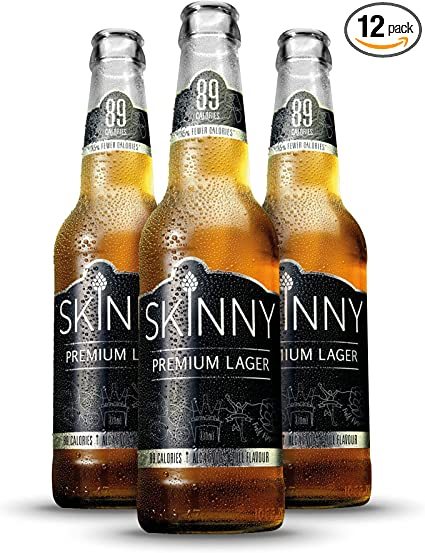
Introduction to Low Carb Beer
Whether you're on a low-carb diet, managing your blood sugar levels, or simply looking for a lighter beer option, low carb beer can be a great choice. With fewer carbohydrates and calories compared to regular beers, it allows you to enjoy a refreshing drink while being mindful of your health goals.
What is Low Carb Beer?
Low carb beer is a type of beer that is brewed to have a reduced carbohydrate content. Brewers achieve this by using special brewing techniques or substituting traditional grains with low-carb alternatives. The result is a beer that is lower in carbohydrates but still retains its distinct flavour and characteristics.
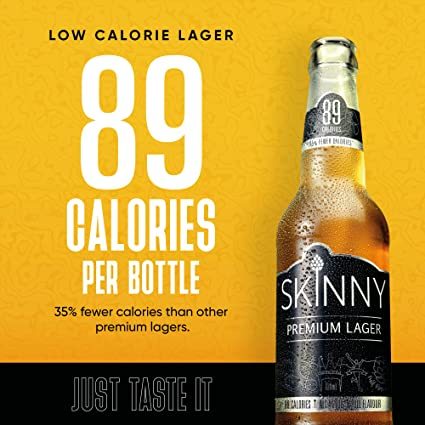
The Benefits of Low Carb Beer
Low carb beer in the UK offers several benefits that make it an attractive choice for many beer enthusiasts. Firstly, it allows you to indulge in your favourite beverage without worrying about the excess carbs. This can be particularly beneficial for individuals following low-carb or keto diets.
Moreover, low carb beer is often lower in calories compared to regular beer, which can be advantageous for those looking to maintain or lose weight. Additionally, it may have a lower alcohol content, making it a more suitable option for those who prefer a milder buzz.
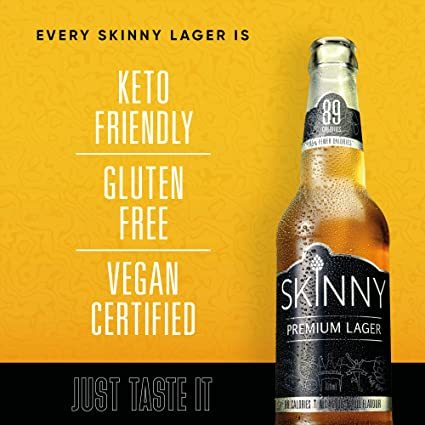
Understanding Carbohydrates and Beer
To fully appreciate low carb beer, it's essential to understand carbohydrates and their role in beer production. Carbohydrates in beer primarily come from the malted barley used during the brewing process. These carbs are consumed by yeast during fermentation, leading to the formation of alcohol and carbon dioxide.
Popular Brands of Low Carb Beer
In recent years, many breweries have recognized the demand for low carb beer and introduced their own offerings. Some popular brands include Brand A, Brand B, and Brand C. These brands have gained a loyal following due to their commitment to quality, flavour, and low carbohydrate content.
Here are some popular brands of low carb beer in the UK along with a brief description:
BrewDog Punk AF:
BrewDog is known for its craft beers, and Punk AF is their low carb, alcohol-free option. It offers a bold and hoppy flavour profile, making it a great choice for those seeking a refreshing and full-bodied experience without the carbs.
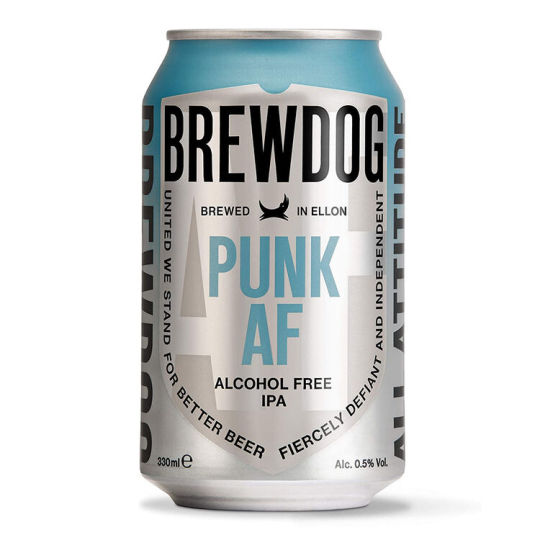
Adnams Ghost Ship Alcohol-Free:
Adnams Ghost Ship Alcohol-Free is a low carb beer that maintains the distinct flavour of the original Ghost Ship ale. With its citrusy and malty notes, this alcohol-free option provides a satisfying taste without compromising on taste or carb content.
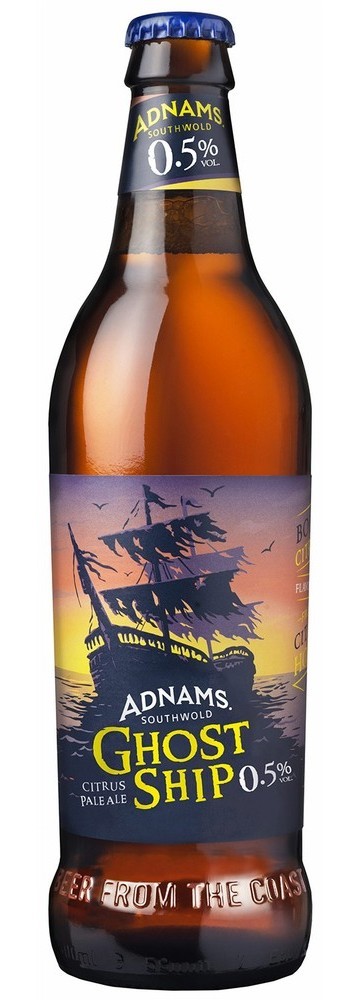
Skinny Brands Lager:
Skinny Brands Lager is a popular choice for those watching their carb intake. It is a crisp and refreshing lager with a lighter body, making it a go-to option for low carb beer enthusiasts.
Thornbridge Big Easy:
Thornbridge Big Easy is a low carb pale ale that offers a balanced blend of hops and citrus flavours. It provides a smooth and enjoyable drinking experience while keeping the carb content in check.
Guinness Open Gate Pure Brew:
Guinness Open Gate Pure Brew is a non-alcoholic, low carb version of the iconic Irish stout. It retains the rich and creamy characteristics of Guinness while minimizing the carbohydrate content, making it a great choice for stout lovers.
Pistonhead Flat Tire:
Pistonhead Flat Tire is a low carb lager with a distinctively smooth taste. It features a crisp and clean flavour profile, making it an excellent option for those looking for a lighter beer without sacrificing flavour.
Peroni Libera 0.0%:
Peroni Libera 0.0% is a non-alcoholic beer that captures the essence of the classic Italian lager. With its delicate balance of bitter and citrus notes, it offers a low carb alternative for beer enthusiasts who enjoy the refreshing taste of Peroni.
Heineken 0.0:
Heineken 0.0 is a popular choice for those seeking a low carb, non-alcoholic beer. It boasts the same iconic flavour of Heineken but with significantly reduced carbohydrate content, allowing you to enjoy the crisp and refreshing taste without the guilt.
Brooklyn Special Effects:
Brooklyn Special Effects is a flavourful non-alcoholic beer with reduced carbs. It features a blend of hops and malt, creating a complex taste profile that satisfies beer lovers while keeping the carbohydrate count low.
Innis & Gunn Innis & None:
Innis & Gunn Innis & None is a zero-alcohol, low carb beer that provides a unique and refreshing drinking experience. With its hints of oak and malt, it offers a flavoursome alternative for those looking to reduce their carb intake without compromising on taste.
Becks Blue Alcohol-Free:
Becks Blue Alcohol-Free is a well-known low carb beer that delivers the familiar crisp and clean taste of Beck's. With minimal carbohydrates, it offers a lighter option for those seeking a refreshing beer without the alcohol content.
Sharp's Doom Bar Zero:
Sharp's Doom Bar Zero is a non-alcoholic, low carb version of the popular Doom Bar amber ale. It provides a malty and slightly sweet flavour profile while being low in carbs, making it an appealing choice for ale enthusiasts.
Estrella Galicia 0.0:
Estrella Galicia 0.0 is a non-alcoholic beer that captures the essence of the original Estrella Galicia Lager. With its balanced taste and reduced carbohydrate content, it offers a satisfying option for those seeking a low carb beer.
San Miguel 0.0:
San Miguel 0.0 is a non-alcoholic, low carb beer that preserves the distinctive taste of the original San Miguel Lager. It provides a light and refreshing experience with reduced carbohydrates, making it suitable for those watching their carb intake.
St Peter's Without:
St Peter's Without is a low carb, alcohol-free beer that combines traditional brewing methods with modern techniques. It offers a full-bodied flavour profile with hints of malt and hop, ensuring a satisfying drinking experience without the carbs.
Budweiser Zero:
Budweiser Zero is a non-alcoholic beer with reduced carbohydrates that still captures the classic Budweiser taste. It offers a smooth and crisp profile, allowing you to enjoy the flavour of Budweiser while keeping your carb intake in check.
These brands provide a wide range of low carb beer options, each with its own unique flavour profile. Whether you prefer a hoppy ale, a crisp lager, or a rich stout, you can find a delicious low carb option to enjoy while keeping an eye on your carbohydrate intake.
How to Choose the Right Low Carb Beer
When selecting a low carb beer, it's important to consider your personal preferences and health goals. Start by checking the nutritional information provided on the label or brewery's website. Look for beers with lower carbohydrate and calorie counts while still offering the taste and characteristics you enjoy.
Low Carb Beer and Weight Loss
For individuals aiming to shed extra pounds, low carb beer can be a helpful tool. By reducing the carbohydrate and calorie intake from beer, you can create a calorie deficit and potentially support weight loss efforts. However, it's crucial to keep moderation in mind and consider the overall balance of your diet.
Low Carb Beer and Diabetes
People with diabetes often need to monitor their carbohydrate intake to manage their blood sugar levels effectively. Low carb beer can be a suitable choice for individuals with diabetes, as it provides a beer option with fewer carbohydrates that are less likely to cause blood sugar spikes.
Low Carb Beer and Blood Sugar Levels
Even for individuals without diabetes, managing blood sugar levels is essential for overall health. Low carb beer can help maintain stable blood sugar levels since it contains fewer carbohydrates. However, it's still important to consume alcohol in moderation and be aware of any individual reactions.
Low Carb Beer and Taste
One common misconception about low carb beer is that it compromises on taste. However, many breweries have invested in creating flavourful low carb options that can rival traditional beers. With a wide range of styles and flavours available, there's likely a low carb beer that suits your taste preferences.
Low Carb Beer and Hangovers
Excessive alcohol consumption can lead to unpleasant hangovers, regardless of the beer's carbohydrate content. While low carb beer may be gentler on the body due to its lower alcohol content, responsible drinking practices and moderation are still crucial to minimize the risk of hangovers.
Low Carb Beer and Alcohol Content
Low carb beer often has a lower alcohol content compared to regular beer. This can be advantageous for individuals who prefer a milder buzz or those who want to limit their alcohol intake. However, it's important to note that alcohol content can vary among different brands and styles of low carb beer.
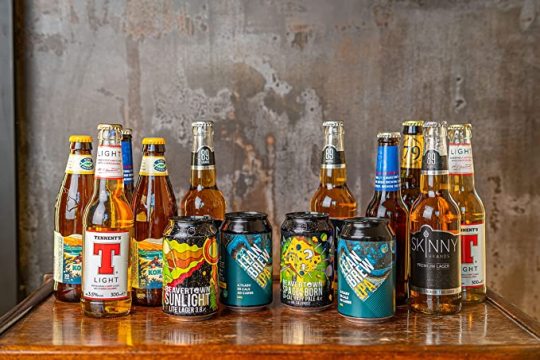
Drinking Low Carb Beer Responsibly
When enjoying low carb beer, responsible consumption is key. Set personal limits, be mindful of your alcohol intake, and always prioritize your health and well-being. Additionally, consider alternatives such as non-alcoholic or alcohol-free beer if you prefer to avoid alcohol entirely.
Is Low Carb Beer for Everyone?
While low carb beer can be a great option for many individuals, it may not be suitable for everyone. It's important to consider your specific health needs, dietary restrictions, and personal preferences. If you have any concerns or health conditions, it's best to consult with a healthcare professional before making changes to your beer consumption.
Conclusion On Low Carb Beer
Low carb beer offers a lighter and healthier alternative for beer lovers who want to watch their carbohydrate intake or make mindful choices about their alcohol consumption. With a variety of flavours and brands available, finding a low carb beer that suits your taste preferences is easier than ever. Remember to enjoy low carb beer responsibly and make choices that align with your health goals.
Frequently Asked Questions (FAQs)
Can low carb beer help with weight loss?
Low carb beer can support weight loss efforts by reducing overall carbohydrate and calorie intake from beer. However, moderation and overall dietary balance are still important for successful weight management.
Is low carb beer suitable for people with diabetes?
Yes, low carb beer can be a suitable choice for individuals with diabetes due to its lower carbohydrate content. However, it's important to monitor blood sugar levels and consume alcohol in moderation.
Does low carb beer compromise on taste?
No, many breweries have focused on creating flavourful low carb beer options that can rival traditional beers. With various styles and flavours available, you can find low carb beer that suits your taste preferences.
Does low carb beer cause fewer hangovers?
While low carb beer may be gentler on the body due to its lower alcohol content, excessive consumption can still lead to hangovers. Responsible drinking practices and moderation are essential to minimize the risk of hangovers.
Can everyone drink low carb beer?
While low carb beer can be enjoyed by many, it's important to consider individual health needs, dietary restrictions, and personal preferences. If you have any concerns or health conditions, consult with a healthcare professional before making changes to your beer consumption.
#keto#ketodiet#keto lchf#ketorecipes#keto beer#keto lager#keto ipa#keto craft beer#keto asf#keto drinks#keto alcohol#keto beer alternatives#guide to keto beer#low carb lager#low carb ipa#Low-carbohydrate brews#Keto-friendly beer#Diabetic-friendly beer#LCHF beer#Low glycemic beer#atkins beer#atkins diet#Low-carb craft beer#Low sugar beer#Low-carb non-alcoholic beer#Low-carb beer brands#zero carb lager#zero sugar beer#zero sugar lager#zero carb beer
5 notes
·
View notes
Text
hm.
#i am. quite annoyed when i tell my family i do not wish to eat unhealthy very often#and when i explain nutritional value i get ignored#even mocked and laughed at#the internet has ruined humanity. if you eat unhealthy foods it will cause an influx of issues like diabetes and high blood pressure#and other various sort of issues. like obesity as well.#i am. Literally. a former fat person. i used to be big. i used to take low dose aspirin often bc i was scared id have a heart attack#i Had sleep apnea. eating unhealthy here and there in small doses is fine but if thats all youre eating you WILL have issues!!!!#when i began eating healthier my body and health improved. /I/ feel better. i cant work out rn bc of my ankle#BUT ive been making it up by eating extra nutritional foods. sure. i had an unhealthy dinner on friday and even some alcohol.#but i do not make that a habit.#im not telling people that they HAVE to eat healthy or anything. im just annoyed that voices like mine get shut down and labelled as bs#aka ''ftphbia'' and then told im intolerant and WRONG abt health#when I MYSELF EXPERIENCED THIS SHIT AND FELT BETTER WHEN I BETTERED MY EATING HABITS#im not ''blessed'' for my thin/curvy body. i had to WORK to get it. i gain weight VERY easily and STRUGGLE to lose it#im proud of how far ive come. im proud of how im not as big as i used to be. im proud that im much healthier now.#and yet despite my mom formerly telling me i needed to lose weight? now shes scoffing at me pointing out nutritional value in food???#bruh.#ill delete this later i just need to vent
3 notes
·
View notes
Text
You can give yourself one genetic mutation and it is safe, effective, and cheap*. What are doing?
*i know that a lot of these aren’t just due to one gene but are a complex interplay of several genes, epigenetic factors, and environmental factors, but we are playing pretend here
18K notes
·
View notes
Text

What leads to KIDNEY DISEASE? 🚨 Uncover the causes.
➡️ Swipe to learn about key causes
✅ High Blood Pressure (Hypertension) ✅ High Blood Sugar (Diabetes) ✅ High Protein & Processed Food Diet ✅ Smoking & Alcohol
#causes of kidney disease#kidney disease risk factors#high blood pressure and kidney disease#diabetes and kidney damage#unhealthy diet kidney problems#high protein diet kidney risk#processed foods kidney health#smoking and kidney disease#alcohol effect on kidneys#how to prevent kidney disease#kidney health tips#early signs of kidney disease#lifestyle and kidney damage#kidney care awareness#chronic kidney disease causes
1 note
·
View note
Text
amooo tomar cafe a las 4, am o pm, y morirme de sueño, this is useful go fuck urself said my metabolism
#lo mismo con ese chupetin hecho lata llamado mosnter mango#una vez tome ese con una tanda de galletitas#tengo historial de diabetes familiar im just battling that with the rampant alcoholism heredado
0 notes
Text

#Can Diabetics Drink Alcohol#Alcohol and diabetes#Safe alcohol options for diabetics#Does alcohol raise blood sugar
0 notes
Text
oh thsts funny
0 notes
Text
Diabetes and Alcohol: Navigating Risks and Balancing Health

For those managing diabetes, keeping blood sugar levels in check is a daily challenge. Adding alcohol into the mix can complicate matters even further. Alcohol can trigger unexpected shifts in blood sugar and interfere with your body’s insulin response, which can be particularly risky for people with diabetes.
Our article takes a closer look at how alcohol affects glucose control and highlights practical tips to help you navigate social situations without compromising your health. Whether you're managing your own diabetes or supporting a loved one, understanding these interactions is essential for making informed decisions.
Discover actionable insights and learn how to balance your health effectively. Read the full article on Diabetes and Alcohol
0 notes
Text
Mitochondrial Dysfunction in Type 2 Diabetes
Introduction
Mitochondria, essential for cellular energy metabolism, play a crucial role in bioenergetics and metabolic homeostasis. Mitochondrial dysfunction has been implicated as a key pathophysiological factor in Type 2 Diabetes Mellitus (T2DM), contributing to insulin resistance, metabolic inflexibility, and beta-cell dysfunction. This review explores the intricate mechanisms underlying mitochondrial impairments in T2DM, including defective oxidative phosphorylation, disrupted mitochondrial dynamics, impaired mitophagy, and excessive reactive oxygen species (ROS) generation, with a focus on potential therapeutic interventions targeting mitochondrial pathways.
Mechanistic Insights into Mitochondrial Dysfunction in T2DM
1. Defective Oxidative Phosphorylation and ATP Synthesis
Mitochondrial oxidative phosphorylation (OXPHOS) occurs through the electron transport chain (ETC), comprising Complexes I-IV and ATP synthase (Complex V). In T2DM, evidence suggests a downregulation of mitochondrial ETC activity, particularly in Complex I (NADH:ubiquinone oxidoreductase) and Complex III (cytochrome bc1 complex), leading to reduced ATP synthesis. This dysfunction is often linked to compromised NADH oxidation and inefficient proton gradient formation, resulting in cellular energy deficits and impaired insulin-stimulated glucose uptake.
2. Elevated Reactive Oxygen Species (ROS) and Oxidative Stress
Mitochondria are a primary source of ROS, predominantly generated at Complex I and Complex III during electron leakage. In T2DM, excess substrate influx due to hyperglycemia leads to mitochondrial overactivation, driving excessive ROS production. Elevated ROS induces oxidative damage to mitochondrial DNA (mtDNA), lipids, and proteins, disrupting mitochondrial integrity and function. Oxidative stress further impairs insulin signaling by activating stress-responsive kinases such as c-Jun N-terminal kinase (JNK) and IκB kinase (IKK), contributing to systemic insulin resistance.
3. Mitochondrial Biogenesis and Transcriptional Dysregulation
Mitochondrial biogenesis is regulated by the transcriptional coactivator Peroxisome proliferator-activated receptor-gamma coactivator-1 alpha (PGC-1α), which modulates downstream transcription factors such as Nuclear Respiratory Factors (NRF-1/NRF-2) and Mitochondrial Transcription Factor A (TFAM). In T2DM, PGC-1α expression is downregulated, impairing mitochondrial biogenesis and reducing mitochondrial density, leading to decreased oxidative capacity in metabolically active tissues like skeletal muscle and liver.
4. Disrupted Mitochondrial Dynamics and Mitophagy
Mitochondrial quality control is maintained through dynamic fission and fusion processes. Fission, mediated by Dynamin-related protein 1 (Drp1), is necessary for mitochondrial fragmentation and mitophagy, while fusion, regulated by Mitofusin 1/2 (Mfn1/2) and Optic Atrophy 1 (OPA1), maintains mitochondrial integrity. In T2DM, an imbalance favoring excessive fission leads to mitochondrial fragmentation, impairing energy metabolism and exacerbating insulin resistance. Moreover, defective mitophagy, regulated by PTEN-induced kinase 1 (PINK1) and Parkin, results in the accumulation of dysfunctional mitochondria, further aggravating metabolic dysfunction.
Implications of Mitochondrial Dysfunction in T2DM Pathophysiology
1. Skeletal Muscle Insulin Resistance
Skeletal muscle accounts for ~80% of postprandial glucose uptake, relying on mitochondrial ATP production for insulin-mediated glucose transport. Impaired mitochondrial function in muscle cells reduces oxidative phosphorylation efficiency, promoting a shift towards glycolysis and lipid accumulation, ultimately leading to insulin resistance.
2. Pancreatic Beta-Cell Dysfunction
Mitochondrial ATP production is essential for insulin secretion in pancreatic beta cells. ATP-sensitive potassium channels (K_ATP) regulate glucose-stimulated insulin secretion (GSIS), with ATP/ADP ratios dictating channel closure and depolarization-induced insulin exocytosis. In T2DM, mitochondrial dysfunction leads to inadequate ATP generation, impairing GSIS and reducing insulin secretion capacity. Additionally, oxidative stress-induced beta-cell apoptosis contributes to progressive loss of beta-cell mass.
3. Hepatic Mitochondrial Dysfunction and Lipid Dysregulation
Mitochondrial dysfunction in hepatocytes contributes to hepatic insulin resistance and non-alcoholic fatty liver disease (NAFLD). Impaired fatty acid oxidation due to dysfunctional mitochondria leads to lipid accumulation, exacerbating hepatic insulin resistance and systemic metabolic dysregulation.
Therapeutic Strategies Targeting Mitochondrial Dysfunction
1. Exercise-Induced Mitochondrial Adaptation
Physical activity upregulates PGC-1α expression, enhancing mitochondrial biogenesis and oxidative metabolism. High-intensity interval training (HIIT) and endurance exercise improve mitochondrial efficiency and reduce oxidative stress, mitigating insulin resistance in T2DM patients.
2. Pharmacological Modulation of Mitochondrial Function
Metformin: Enhances mitochondrial complex I activity, reducing hepatic gluconeogenesis and oxidative stress.
Thiazolidinediones (TZDs): Activate PPAR-γ, promoting mitochondrial biogenesis and improving insulin sensitivity.
Mitochondria-targeted Antioxidants: Agents like MitoQ, SkQ1, and SS-31 reduce mitochondrial ROS, preventing oxidative damage and preserving mitochondrial function.
3. Nutritional and Metabolic Interventions
Ketogenic and Low-Carb Diets: Enhance mitochondrial fatty acid oxidation, reducing lipid accumulation and improving metabolic flexibility.
Intermittent Fasting: Induces mitochondrial biogenesis and autophagy, improving metabolic homeostasis.
Nutraceuticals: Coenzyme Q10, resveratrol, and nicotinamide riboside (NR) enhance mitochondrial function and energy metabolism.
4. Emerging Gene and Cellular Therapies
Gene Therapy: Targeted upregulation of PGC-1α and TFAM to restore mitochondrial function.
Mitochondrial Transplantation: Direct transfer of healthy mitochondria to replace dysfunctional ones, an emerging frontier in metabolic disease management.
Conclusion
Mitochondrial dysfunction is a central determinant in the pathogenesis of T2DM, affecting insulin signaling, glucose metabolism, and lipid homeostasis. Targeting mitochondrial pathways through exercise, pharmacological agents, dietary modifications, and emerging gene therapies offers promising avenues for improving metabolic health in T2DM.

#Mitochondrial Dysfunction#Type 2 Diabetes Mellitus (T2DM)#Oxidative Phosphorylation (OXPHOS)#Electron Transport Chain (ETC)#ATP Synthesis#Reactive Oxygen Species (ROS)#Oxidative Stress#Mitochondrial DNA (mtDNA) Damage#Peroxisome Proliferator-Activated Receptor-Gamma Coactivator-1 Alpha (PGC-1α)#Nuclear Respiratory Factors (NRF-1/NRF-2)#Mitochondrial Transcription Factor A (TFAM)#Mitochondrial Biogenesis#Mitochondrial Dynamics (Fission & Fusion)#Dynamin-related protein 1 (Drp1)#Mitofusin 1/2 (Mfn1/2)#Optic Atrophy 1 (OPA1)#Mitophagy#PTEN-Induced Kinase 1 (PINK1)#Parkin#Insulin Resistance#Skeletal Muscle Metabolism#Pancreatic Beta-Cell Dysfunction#Glucose-Stimulated Insulin Secretion (GSIS)#ATP-Sensitive Potassium Channels (K_ATP)#Lipid Dysregulation#Non-Alcoholic Fatty Liver Disease (NAFLD)#Exercise-Induced Mitochondrial Adaptation#High-Intensity Interval Training (HIIT)#Metformin#Thiazolidinediones (TZDs)
0 notes
Text

The Science Research Manuscripts of S. Sunkavally, p 725.
#lifespan of cloned mice#nucleocytoplasmic ratio#Benjamin Franklin#Rana sylvestris#freezing#glucose levels#diabetes#magnasium#hyperpolarization of the cell#sleep#coral polyps#glycerol#alcohols#tall men#centenarians
1 note
·
View note